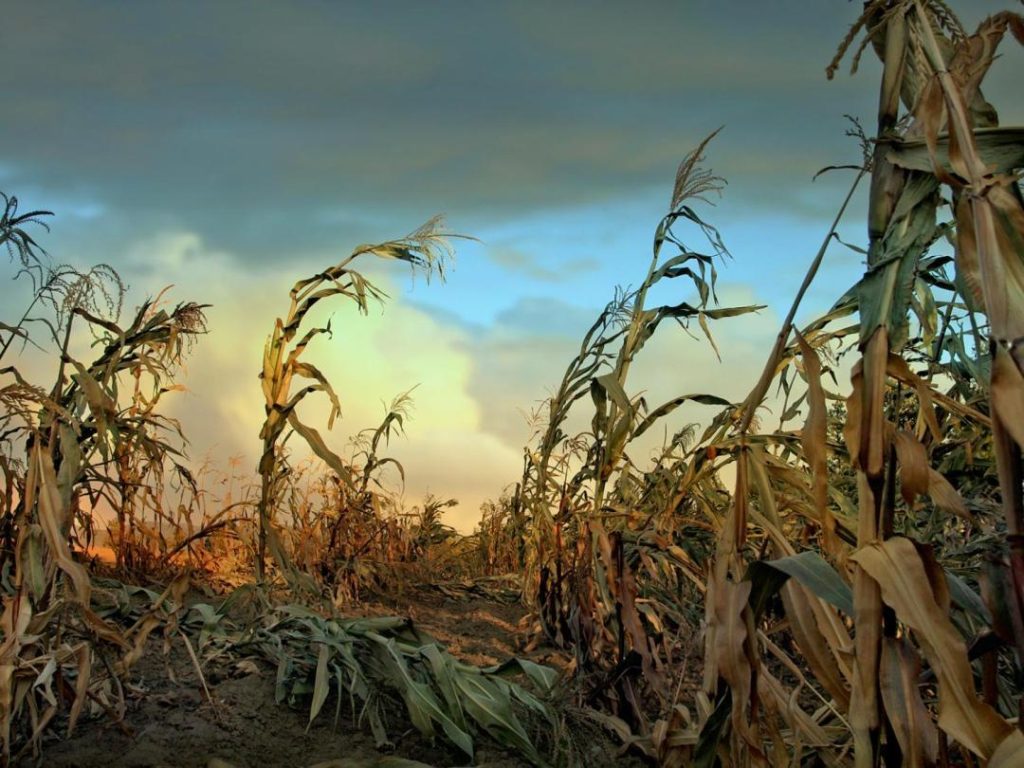
Researchers Reveal How a Large-Scale Nuclear War Will Affect Food Supply
The thought of a large-scale nuclear war is a daunting and terrifying prospect. The devastating effects of such an event on human life and the environment are well-documented. However, a recent study has shed light on another critical aspect of the aftermath: the impact on the global food supply.
The study, conducted by researchers at Penn State University, simulated the effects of a “nuclear winter,” a hypothetical scenario that would follow a large-scale nuclear war. The results are alarming, suggesting that widespread crop failures could persist for years as smoke and soot block sunlight.
The concept of a nuclear winter is not new. It was first proposed in the 1980s by scientists who warned that a large-scale nuclear war could lead to a prolonged period of cold temperatures, reduced sunlight, and devastating environmental effects. The idea is that the massive amount of smoke and soot released into the atmosphere would block sunlight, leading to a significant decrease in global temperatures and crop yields.
The Penn State study, published in the journal Environmental Research Letters, used advanced computer models to simulate the effects of a nuclear winter on global food production. The researchers found that the effects would be far-reaching and long-lasting, with crop yields plummeting by as much as 50% in the first year after the war.
The study’s lead author, Dr. Michael J. Mills, explained that the smoke and soot released into the atmosphere would have a profound impact on global food production. “As the climate recovers, high UV-B radiation could further damage crops, with effects manifesting years after the nuclear conflict,” he said.
The researchers used a combination of climate models and crop simulation models to predict the effects of a nuclear winter on global food production. They found that the effects would be most pronounced in regions that are already vulnerable to food insecurity, such as Africa and South Asia.
The study’s findings are a grim reminder of the devastating consequences of a large-scale nuclear war. The loss of food production would not only lead to widespread famine and malnutrition but also have long-lasting effects on the environment and human health.
The effects of a nuclear winter on food production would be felt far beyond the immediate aftermath of the war. The study found that crop yields would continue to decline for years, even after the climate had recovered. This is because the high levels of UV-B radiation in the atmosphere would continue to damage crops, making it difficult for them to recover.
The researchers emphasized that the study’s findings are not meant to be alarmist, but rather to highlight the importance of reducing the risk of a large-scale nuclear war. “Our study is a reminder of the devastating consequences of a nuclear war and the need for international cooperation to prevent such an event from occurring,” Dr. Mills said.
The study’s findings also highlight the importance of building resilience in food systems. In the event of a nuclear winter, the ability of food systems to adapt to the changing climate would be critical in maintaining food security.
The study’s authors noted that the findings are not limited to the effects of a nuclear war. They also have implications for the impacts of other climate-related disasters, such as volcanic eruptions and solar flares. “Our study shows that the effects of a nuclear winter are not unique to nuclear war, but rather a general consequence of large-scale climate disruptions,” Dr. Mills said.
In conclusion, the study’s findings are a sobering reminder of the devastating consequences of a large-scale nuclear war. The loss of food production would not only lead to widespread famine and malnutrition but also have long-lasting effects on the environment and human health.
As the world grapples with the threat of nuclear war, it is essential that we take steps to reduce the risk of such an event. This includes building international cooperation, reducing nuclear arsenals, and promoting diplomacy and dialogue.
The study’s findings also highlight the importance of building resilience in food systems. In the event of a nuclear winter, the ability of food systems to adapt to the changing climate would be critical in maintaining food security.
In the words of Dr. Mills, “Our study is a reminder of the devastating consequences of a nuclear war and the need for international cooperation to prevent such an event from occurring.”






